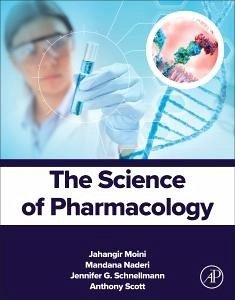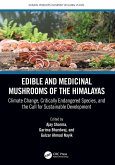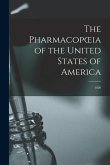Versandkostenfrei innerhalb Deutschlands
126,99 €
inkl. MwSt.
Versandkostenfrei*
Erscheint vorauss. 24. April 2026
Melden Sie sich
hier
hier
für den Produktalarm an, um über die Verfügbarkeit des Produkts informiert zu werden.

63 °P sammeln
- Broschiertes Buch
The Science of Pharmacology offers a detailed and contemporary exploration of medications, delving into the scientific principles behind drug actions and their therapeutic applications. It is an essential resource for students in pharmacology and pharmaceutical sciences, providing foundational knowledge on a wide range of topics. The book addresses the effects of drugs on various bodily systems, such as the nervous, respiratory, and cardiovascular systems, and also covers their impact on mental health and behavior. Beyond the core topics, the book also discusses special subjects like herbal…mehr
Andere Kunden interessierten sich auch für
![Private Instructions in the Science and Art of Organic Magnetism Private Instructions in the Science and Art of Organic Magnetism]() Chandos Leigh Hunt WallacePrivate Instructions in the Science and Art of Organic Magnetism20,99 €
Chandos Leigh Hunt WallacePrivate Instructions in the Science and Art of Organic Magnetism20,99 €![Hygiene, or, The Principles of Health: Adapted to the Requirements of the Science and Art Department, South Kensington Hygiene, or, The Principles of Health: Adapted to the Requirements of the Science and Art Department, South Kensington]() John J. PilleyHygiene, or, The Principles of Health: Adapted to the Requirements of the Science and Art Department, South Kensington18,99 €
John J. PilleyHygiene, or, The Principles of Health: Adapted to the Requirements of the Science and Art Department, South Kensington18,99 €![The Laws of Therapeutics: Or, the Science and Art of Medicine The Laws of Therapeutics: Or, the Science and Art of Medicine]() Joseph KiddThe Laws of Therapeutics: Or, the Science and Art of Medicine20,99 €
Joseph KiddThe Laws of Therapeutics: Or, the Science and Art of Medicine20,99 €![Edible and Medicinal Mushrooms of the Himalayas Edible and Medicinal Mushrooms of the Himalayas]() Edible and Medicinal Mushrooms of the Himalayas100,99 €
Edible and Medicinal Mushrooms of the Himalayas100,99 €![The Science and Art of Dispensing and a Dictionary of Synonyms The Science and Art of Dispensing and a Dictionary of Synonyms]() The Science and Art of Dispensing and a Dictionary of Synonyms22,99 €
The Science and Art of Dispensing and a Dictionary of Synonyms22,99 €![The Chemist and Druggist [electronic Resource]; Vol. 32 (28 Jan. 1888) The Chemist and Druggist [electronic Resource]; Vol. 32 (28 Jan. 1888)]() The Chemist and Druggist [electronic Resource]; Vol. 32 (28 Jan. 1888)21,99 €
The Chemist and Druggist [electronic Resource]; Vol. 32 (28 Jan. 1888)21,99 €![The Pharmacopoeia of the United States of America: 1820 The Pharmacopoeia of the United States of America: 1820]() AnonymousThe Pharmacopoeia of the United States of America: 182021,99 €
AnonymousThe Pharmacopoeia of the United States of America: 182021,99 €-
-
-
The Science of Pharmacology offers a detailed and contemporary exploration of medications, delving into the scientific principles behind drug actions and their therapeutic applications. It is an essential resource for students in pharmacology and pharmaceutical sciences, providing foundational knowledge on a wide range of topics. The book addresses the effects of drugs on various bodily systems, such as the nervous, respiratory, and cardiovascular systems, and also covers their impact on mental health and behavior. Beyond the core topics, the book also discusses special subjects like herbal medications and drug interactions. It includes valuable teaching materials, including test banks and quizzes, and offers comprehensive insights into toxicological treatments, making it an invaluable tool for both learning and teaching in the field.
Produktdetails
- Produktdetails
- Verlag: Elsevier Science
- Seitenzahl: 800
- Erscheinungstermin: 24. April 2026
- Englisch
- Abmessung: 276mm x 216mm
- Gewicht: 450g
- ISBN-13: 9780443290381
- ISBN-10: 0443290385
- Artikelnr.: 74880068
- Herstellerkennzeichnung
- Libri GmbH
- Europaallee 1
- 36244 Bad Hersfeld
- gpsr@libri.de
- Verlag: Elsevier Science
- Seitenzahl: 800
- Erscheinungstermin: 24. April 2026
- Englisch
- Abmessung: 276mm x 216mm
- Gewicht: 450g
- ISBN-13: 9780443290381
- ISBN-10: 0443290385
- Artikelnr.: 74880068
- Herstellerkennzeichnung
- Libri GmbH
- Europaallee 1
- 36244 Bad Hersfeld
- gpsr@libri.de
Dr. Moini was assistant professor at Tehran University, Medical School, Department of Epidemiology and Preventive Medicine, for nine years. For 15 years, he was the Director of Science and Health for Everest University in Melbourne FL. He was also a Professor of Science and Health at Everest for a total of 24 years. For 6 years, until his retirement, he was a Professor of Science and Health at Eastern Florida State College. Dr. Moini has been actively teaching for 39 years, and for 23 years, has been an international author of 56 books (including 11 books for Elsevier).
Unit I: General Principals
1. Introduction
2. Pharmacodynamics
3. Pharmacokinetics
4. Pharmacogenomics
5. Medication Errors
6. Complementary and Alternative Therapies
7. Medical Law and Ethics
8. Drug Approvals and Drug Regulation
Unit II: Drug Effects in the Central Nervous System
9. Sedative-Hypnotic Drugs
10. Antiseizure Drugs
11. General Anesthetics
12. Local Anesthetics
13. Skeletal Muscle Relaxants
14. Drugs Used in Parkinsonism and Other Movement Disorders
15. Opioid Analgesics and Antagonists
16. Substance Use Disorders
Unit III: Autonomic Drugs
17. Neurotransmitters
18. Adrenergic Agonists
19. Adrenergic Antagonists
20. Cholinergic Agonists
21. Cholinergic Antagonists
Unit IV: Mental and Behavioral Health Drugs
22. Anxiety and Insomnia Drugs
23. Antidepressants
24. Antipsychotic Drugs
25. Schizophrenia Drugs
26. Personality Disorder Drugs
27. Somatic Symptom Disorders
28. Attention-Deficit/Hyperactivity Disorder Drugs
Unit V: Cardiovascular Drugs
29. Antihyperlipidemic Drugs
30. Antianginal Drugs
31. Antihypertensive Drugs
32. Antiarrhythmic Drugs
33. Drugs Used in Coagulation Disorders
34. Drugs Used in Heart Failure
35. Diuretics
36. Drugs Used for Electrolyte and Acid-Base Imbalances
Unit VI: Endocrine Drugs
37. Hypothalamic and Pituitary Hormones
38. Thyroid and Antithyroid Drugs
39. Adrenocorticosteroids and Adrenocortical Antagonists
40. Gonadal Hormones and Inhibitors
41. Pancreatic Hormones and Antidiabetic Drugs
Unit VII: Gastrointestinal Drugs
42. Antiemetics and Antidiarrheal Drugs
43. Antiulcer Drugs
44. Chronic Bowel Disease and Inflammatory Bowel Disease Drugs
Unit VIII: Respiratory Drugs
45. Asthma Drugs
46. Chronic Obstructive Pulmonary Disorder Drugs
Unit IX: Chemotherapeutic Drugs
47. Antiviral Drugs
48. Antibacterial Drugs
49. Antituberculosis Drugs
50. Antifungal Drugs
51. Antiprotozoal Drugs
52. Cancer Chemotherapy
53. Immunopharmacology
Unit X: Toxicology
54. Heavy Metals
55. Occupational Toxicology
56. Treatment of Intoxicated Patients
Unit XI: Special Topics
57. Dietary Supplements and Herbal Medications
58. Drug Interactions
59. NSAIDs and Acetaminophen
60. Drugs Used in Rheumatoid Arthritis and Gout
Appendix
A: Dosage Calculations
B: ISMP List of High-alert Medications
C: Answers to End-of-Chapter Questions
D: Answers to Case Study Critical Thinking Questions
1. Introduction
2. Pharmacodynamics
3. Pharmacokinetics
4. Pharmacogenomics
5. Medication Errors
6. Complementary and Alternative Therapies
7. Medical Law and Ethics
8. Drug Approvals and Drug Regulation
Unit II: Drug Effects in the Central Nervous System
9. Sedative-Hypnotic Drugs
10. Antiseizure Drugs
11. General Anesthetics
12. Local Anesthetics
13. Skeletal Muscle Relaxants
14. Drugs Used in Parkinsonism and Other Movement Disorders
15. Opioid Analgesics and Antagonists
16. Substance Use Disorders
Unit III: Autonomic Drugs
17. Neurotransmitters
18. Adrenergic Agonists
19. Adrenergic Antagonists
20. Cholinergic Agonists
21. Cholinergic Antagonists
Unit IV: Mental and Behavioral Health Drugs
22. Anxiety and Insomnia Drugs
23. Antidepressants
24. Antipsychotic Drugs
25. Schizophrenia Drugs
26. Personality Disorder Drugs
27. Somatic Symptom Disorders
28. Attention-Deficit/Hyperactivity Disorder Drugs
Unit V: Cardiovascular Drugs
29. Antihyperlipidemic Drugs
30. Antianginal Drugs
31. Antihypertensive Drugs
32. Antiarrhythmic Drugs
33. Drugs Used in Coagulation Disorders
34. Drugs Used in Heart Failure
35. Diuretics
36. Drugs Used for Electrolyte and Acid-Base Imbalances
Unit VI: Endocrine Drugs
37. Hypothalamic and Pituitary Hormones
38. Thyroid and Antithyroid Drugs
39. Adrenocorticosteroids and Adrenocortical Antagonists
40. Gonadal Hormones and Inhibitors
41. Pancreatic Hormones and Antidiabetic Drugs
Unit VII: Gastrointestinal Drugs
42. Antiemetics and Antidiarrheal Drugs
43. Antiulcer Drugs
44. Chronic Bowel Disease and Inflammatory Bowel Disease Drugs
Unit VIII: Respiratory Drugs
45. Asthma Drugs
46. Chronic Obstructive Pulmonary Disorder Drugs
Unit IX: Chemotherapeutic Drugs
47. Antiviral Drugs
48. Antibacterial Drugs
49. Antituberculosis Drugs
50. Antifungal Drugs
51. Antiprotozoal Drugs
52. Cancer Chemotherapy
53. Immunopharmacology
Unit X: Toxicology
54. Heavy Metals
55. Occupational Toxicology
56. Treatment of Intoxicated Patients
Unit XI: Special Topics
57. Dietary Supplements and Herbal Medications
58. Drug Interactions
59. NSAIDs and Acetaminophen
60. Drugs Used in Rheumatoid Arthritis and Gout
Appendix
A: Dosage Calculations
B: ISMP List of High-alert Medications
C: Answers to End-of-Chapter Questions
D: Answers to Case Study Critical Thinking Questions
Unit I: General Principals
1. Introduction
2. Pharmacodynamics
3. Pharmacokinetics
4. Pharmacogenomics
5. Medication Errors
6. Complementary and Alternative Therapies
7. Medical Law and Ethics
8. Drug Approvals and Drug Regulation
Unit II: Drug Effects in the Central Nervous System
9. Sedative-Hypnotic Drugs
10. Antiseizure Drugs
11. General Anesthetics
12. Local Anesthetics
13. Skeletal Muscle Relaxants
14. Drugs Used in Parkinsonism and Other Movement Disorders
15. Opioid Analgesics and Antagonists
16. Substance Use Disorders
Unit III: Autonomic Drugs
17. Neurotransmitters
18. Adrenergic Agonists
19. Adrenergic Antagonists
20. Cholinergic Agonists
21. Cholinergic Antagonists
Unit IV: Mental and Behavioral Health Drugs
22. Anxiety and Insomnia Drugs
23. Antidepressants
24. Antipsychotic Drugs
25. Schizophrenia Drugs
26. Personality Disorder Drugs
27. Somatic Symptom Disorders
28. Attention-Deficit/Hyperactivity Disorder Drugs
Unit V: Cardiovascular Drugs
29. Antihyperlipidemic Drugs
30. Antianginal Drugs
31. Antihypertensive Drugs
32. Antiarrhythmic Drugs
33. Drugs Used in Coagulation Disorders
34. Drugs Used in Heart Failure
35. Diuretics
36. Drugs Used for Electrolyte and Acid-Base Imbalances
Unit VI: Endocrine Drugs
37. Hypothalamic and Pituitary Hormones
38. Thyroid and Antithyroid Drugs
39. Adrenocorticosteroids and Adrenocortical Antagonists
40. Gonadal Hormones and Inhibitors
41. Pancreatic Hormones and Antidiabetic Drugs
Unit VII: Gastrointestinal Drugs
42. Antiemetics and Antidiarrheal Drugs
43. Antiulcer Drugs
44. Chronic Bowel Disease and Inflammatory Bowel Disease Drugs
Unit VIII: Respiratory Drugs
45. Asthma Drugs
46. Chronic Obstructive Pulmonary Disorder Drugs
Unit IX: Chemotherapeutic Drugs
47. Antiviral Drugs
48. Antibacterial Drugs
49. Antituberculosis Drugs
50. Antifungal Drugs
51. Antiprotozoal Drugs
52. Cancer Chemotherapy
53. Immunopharmacology
Unit X: Toxicology
54. Heavy Metals
55. Occupational Toxicology
56. Treatment of Intoxicated Patients
Unit XI: Special Topics
57. Dietary Supplements and Herbal Medications
58. Drug Interactions
59. NSAIDs and Acetaminophen
60. Drugs Used in Rheumatoid Arthritis and Gout
Appendix
A: Dosage Calculations
B: ISMP List of High-alert Medications
C: Answers to End-of-Chapter Questions
D: Answers to Case Study Critical Thinking Questions
1. Introduction
2. Pharmacodynamics
3. Pharmacokinetics
4. Pharmacogenomics
5. Medication Errors
6. Complementary and Alternative Therapies
7. Medical Law and Ethics
8. Drug Approvals and Drug Regulation
Unit II: Drug Effects in the Central Nervous System
9. Sedative-Hypnotic Drugs
10. Antiseizure Drugs
11. General Anesthetics
12. Local Anesthetics
13. Skeletal Muscle Relaxants
14. Drugs Used in Parkinsonism and Other Movement Disorders
15. Opioid Analgesics and Antagonists
16. Substance Use Disorders
Unit III: Autonomic Drugs
17. Neurotransmitters
18. Adrenergic Agonists
19. Adrenergic Antagonists
20. Cholinergic Agonists
21. Cholinergic Antagonists
Unit IV: Mental and Behavioral Health Drugs
22. Anxiety and Insomnia Drugs
23. Antidepressants
24. Antipsychotic Drugs
25. Schizophrenia Drugs
26. Personality Disorder Drugs
27. Somatic Symptom Disorders
28. Attention-Deficit/Hyperactivity Disorder Drugs
Unit V: Cardiovascular Drugs
29. Antihyperlipidemic Drugs
30. Antianginal Drugs
31. Antihypertensive Drugs
32. Antiarrhythmic Drugs
33. Drugs Used in Coagulation Disorders
34. Drugs Used in Heart Failure
35. Diuretics
36. Drugs Used for Electrolyte and Acid-Base Imbalances
Unit VI: Endocrine Drugs
37. Hypothalamic and Pituitary Hormones
38. Thyroid and Antithyroid Drugs
39. Adrenocorticosteroids and Adrenocortical Antagonists
40. Gonadal Hormones and Inhibitors
41. Pancreatic Hormones and Antidiabetic Drugs
Unit VII: Gastrointestinal Drugs
42. Antiemetics and Antidiarrheal Drugs
43. Antiulcer Drugs
44. Chronic Bowel Disease and Inflammatory Bowel Disease Drugs
Unit VIII: Respiratory Drugs
45. Asthma Drugs
46. Chronic Obstructive Pulmonary Disorder Drugs
Unit IX: Chemotherapeutic Drugs
47. Antiviral Drugs
48. Antibacterial Drugs
49. Antituberculosis Drugs
50. Antifungal Drugs
51. Antiprotozoal Drugs
52. Cancer Chemotherapy
53. Immunopharmacology
Unit X: Toxicology
54. Heavy Metals
55. Occupational Toxicology
56. Treatment of Intoxicated Patients
Unit XI: Special Topics
57. Dietary Supplements and Herbal Medications
58. Drug Interactions
59. NSAIDs and Acetaminophen
60. Drugs Used in Rheumatoid Arthritis and Gout
Appendix
A: Dosage Calculations
B: ISMP List of High-alert Medications
C: Answers to End-of-Chapter Questions
D: Answers to Case Study Critical Thinking Questions






![The Chemist and Druggist [electronic Resource]; Vol. 32 (28 Jan. 1888) The Chemist and Druggist [electronic Resource]; Vol. 32 (28 Jan. 1888)](https://bilder.buecher.de/produkte/65/65492/65492362m.jpg)
